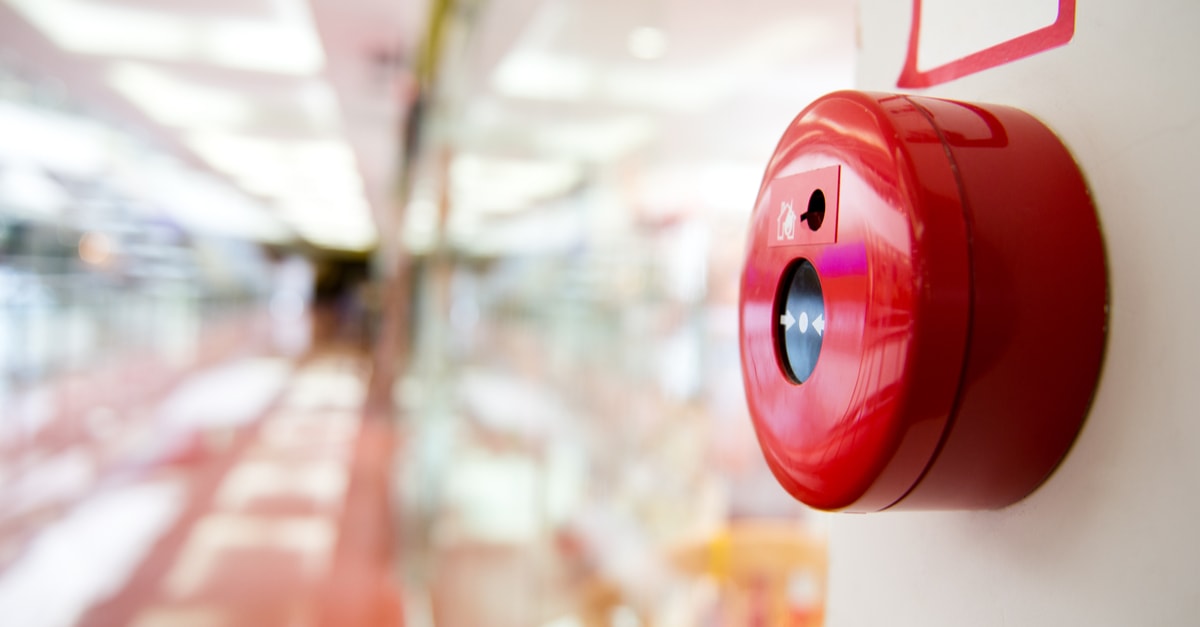Though the summertime is hurricane season for many parts of the world, areas with drier climates have another weather concern: fires. Nearly 5,000 fires take place each day during the summer, and there are a wide variety of factors that can lead to a fire. From a hot, dry climate to overheating electrical devices, dust and debris clogs in machinery, fireworks on the Fourth of July, summer lightning storms, and the frequency of cookouts, summer comes with a greatly heightened risk for fires. NASA satellites have reported that the southwestern region of the United States in particular is already experiencing thousands of acres of summer fires due to its hot climate, dry lightning, and abundance of dry flora. With the summer only just beginning, it is extremely important for facilities and individuals to protect themselves from fire dangers.
It is particularly important for healthcare facilities, most notably nursing homes and assisted living facilities, to understand fire hazards and have solid plans in place to address them, especially in these summer months when the risk is so heightened. These types of facilities typically have a great deal of machinery – and they are very likely to have oxygen supplies, which could be a fire risk – running in order to care for their residents, and having large numbers of people in one living space could be potentially devastating were a fire to break out. According to the National Fire Protection Association, a person at the age of 65 or above is twice as likely to be killed or injured in a fire than the rest of the general population. As many residents of healthcare facilities and nursing homes may have impaired health, they are likely to require extra assistance if a fire were to break out.
A good disaster preparedness plan starts with preventative measures to reduce the risk of a disaster occurring. In order to protect themselves and their residents from fires, facilities should take measures to reduce fire hazards around their facilities. They should have working fire alarms throughout the facility and regularly run audits to ensure that the devices are not out of batteries or otherwise unable to properly function. Fire extinguishers should also be present, and facility staff should be trained on how to use them properly. Thorough inspections should be done on HVACs, exhaust fans, vents, and any other machinery inside the facility to ensure that they are running properly and do not have any potential fire hazards (such as frayed wires or a buildup of combustible debris). They should exercise caution when running multiple units at once, as they could potentially overload and overheat, and residents should be advised on
If a fire were to break out at a nursing home or assisted living facility, the facility should have a concrete, tested plan in place for evacuating residents and taking care of the situation as quickly as possible. This will require a great deal of planning from management, as they will need to understand what will trigger an evacuation, how to best evacuate residents and ensure their safety, where to take residents, and how to communicate. If the fire is small, it could potentially be handled by a trained employee with a fire extinguisher, but a large fire will require quick action to ensure the safety of all residents, who could easily find themselves confused or disoriented by the fire. It is imperative that assisted living facilities and nursing homes be in close contact with their local emergency services so they will understand what to do in the event of a large fire and be able to quickly reach someone who can help to mitigate some of the damage. Finally, these facilities should regularly review and update their prevention and evacuation plans, and ensure that they have the right insurance coverage to protect their facilities.
Caitlin Morgan specializes in insuring nursing homes and assisted living facilities and can assist you in providing insurance and risk management services for this niche market. Give us a call to learn more about our programs at 317.575.4440.


